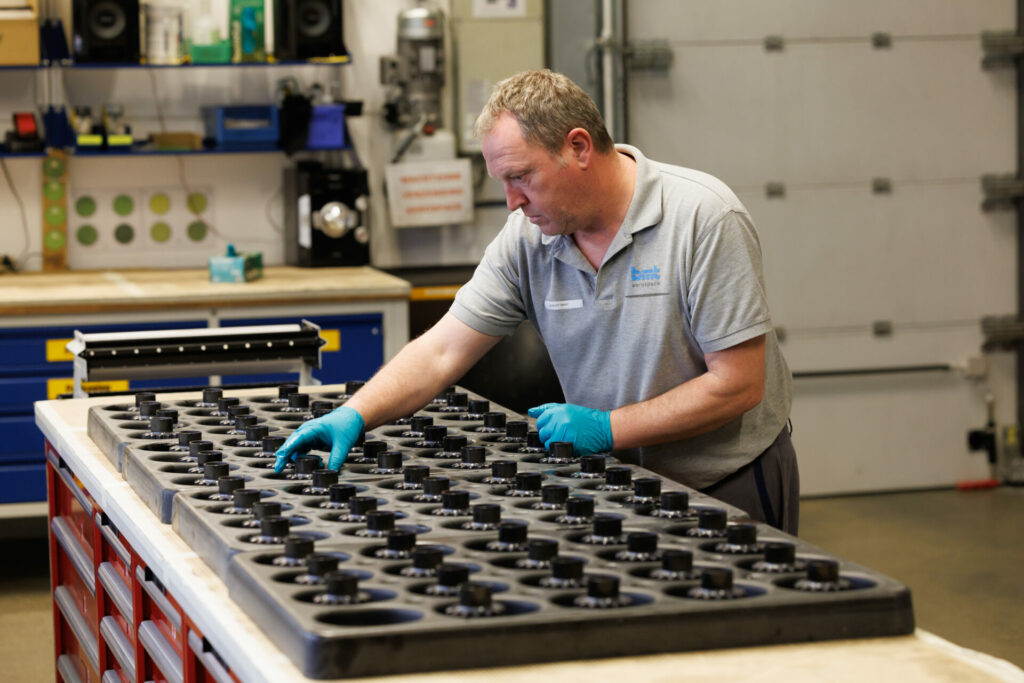In an unassuming business park not far from the Flemish municipality of Oostkamp, BMT Aerospace is leading the way for innovation in Flanders. The site primarily deals with gears and gearboxes for the commercial sector – every two seconds an aircraft fitted with BMT components takes off. But the company is also an active participant in the growing Flemish military sector.
The company develops parts used in the F135 advanced fighter engine of US aerospace company Pratt & Whitney. This powers the F-35 Joint Strike Fighter. The company's components are also essential in the F-22 Raptor, F-15 Eagle, F-16 Fighting Falcon, as well as the famous Black Hawk and Apache Helicopters. Each year, BMT provides around 140,000 to 150,000 gears to major players in the civilian and military sectors.
Against the backdrop of the war in Ukraine, the global arms industry has rallied significantly. Notably in the US, the arms industry has boomed on the back of increased defence budgets and arms shipments.
As the biggest spender in the NATO military alliance, the US has urged European nations to increase their military spending. EU officials have warned that the US is profiting through the sale of weapons and gas prices. Analysts argue that the US military-industrial complex (MIC) is now expanding beyond what is needed to defend Ukraine.
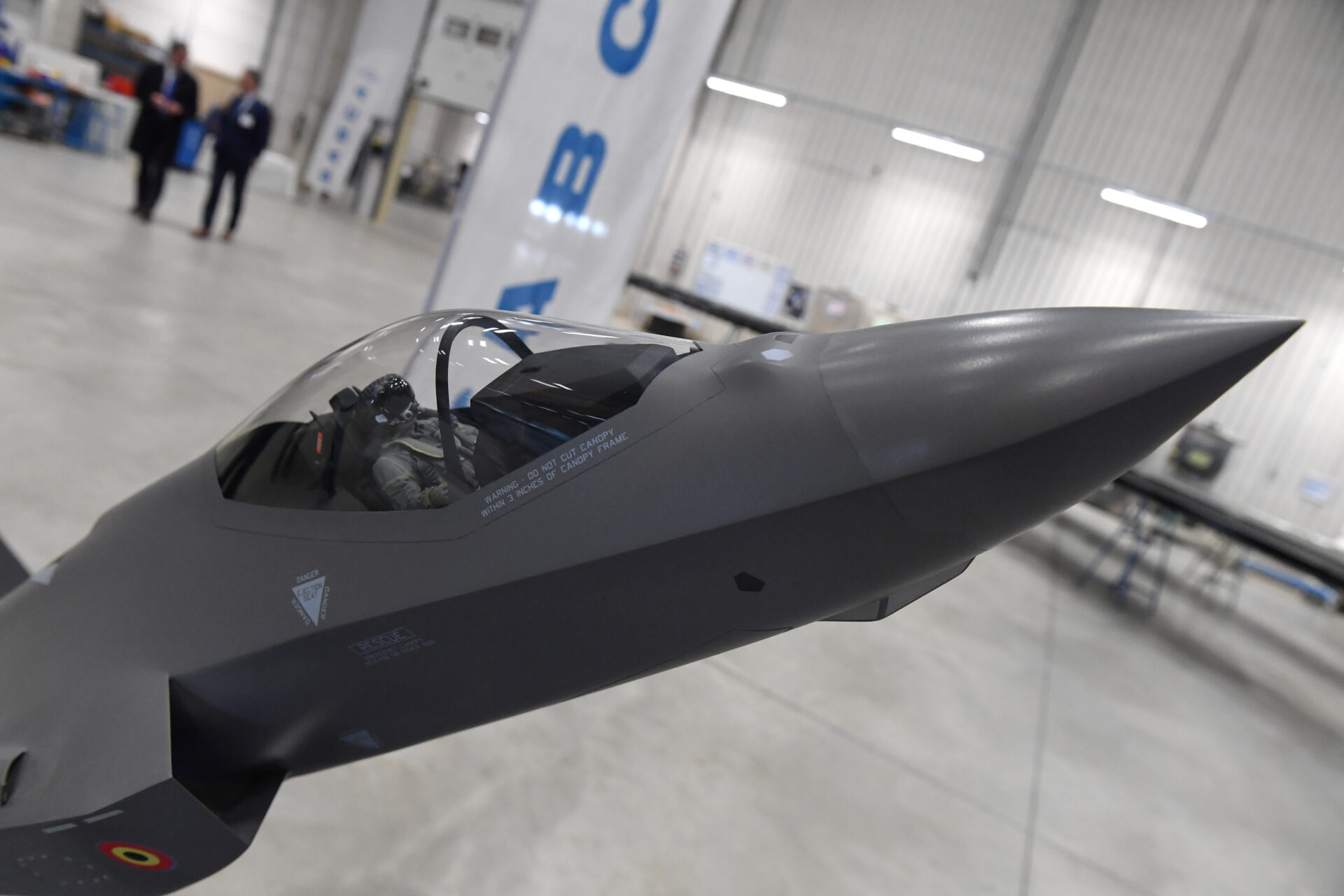
Credit: BELGA PHOTO/ JOHN THYS
Belgium’s defence budget is set to increase to 2% of GDP by 2035, rising to €6.9 billion in 2030. Notably, Belgium spent €3.8 billion on the purchase of new F-35 fighter aircraft, with Belgian aerospace companies Sabca, Asco, and BMT playing an active role in their construction.
Last year, chief of Defence of the Belgian Armed Forces, Admiral Michel Hofman, stated that Belgium is transitioning “from a peace industry to a war industry.”
US investment leads to Flemish military boom
At an event on Monday marking 50 years of Flemish-American cooperation under the auspices of the Flemish Minister-President Jan Jambon and representatives of the American military-industrial complex, guests at the BMT site spoke of a growing Flemish competitive edge in the development of cutting-edge military technology.
“BMT Aerospace has been a major supplier for more than 50 years to several military programs that contribute to our safety every day… Special thanks to our customers and partners in the US who gave us the opportunity to contribute to the protection of our Western norms and values through platforms such as the F-35,” BMT Aerospace CEO Benoit Reynders told guests in his opening speech.
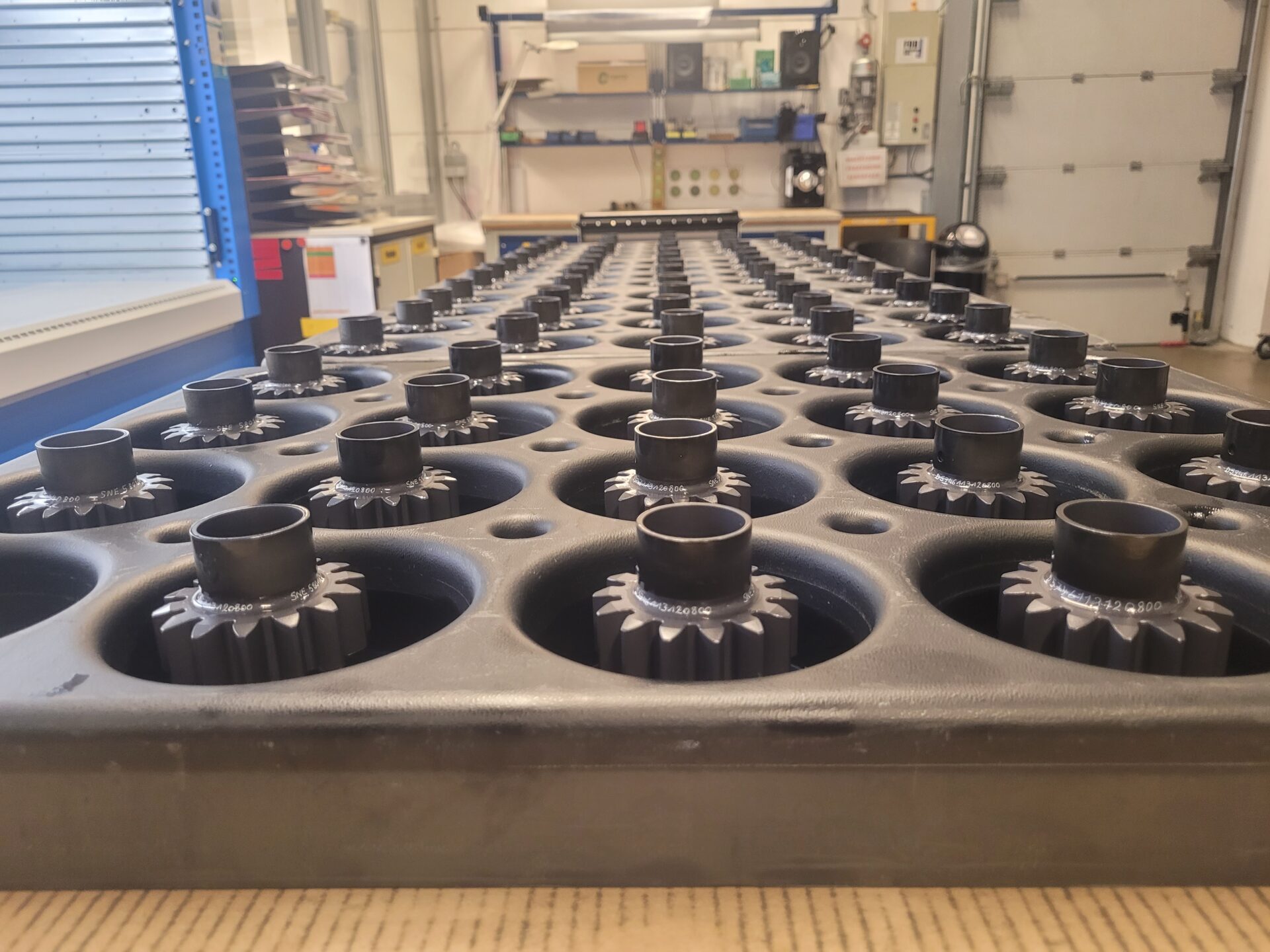
Credit: Dylan Carter/The Brussels Times
While traditionally lagging behind Wallonia in terms of its defence sector, Flanders is aggressively expanding to meet the needs of US defence contracts with Europe and other allied nations.
In 2021, the Flemish military sector posted record results, exporting goods worth €143 million, much of which related to the F-35 programme. In the first few months of 2022, Flanders concluded €491 million in export licences, largely motivated by Russia’s invasion of Ukraine.
It is perhaps no surprise that 2023 is set to be a good year for BMT Aerospace. The company recently acquired new production facilities in Fraser, Michigan for $40 million as well as a new location in Romania. From its site in the US, around 60% of parts are for military use.
“BMT is active in the production of gears and gearboxes, both for the military sector as well as to the civil aviation… For us, the military business is growing. There is a big demand for new jet fighters from the Americans. With our new American business, we supply the gears,” Reynders told The Brussels Times.
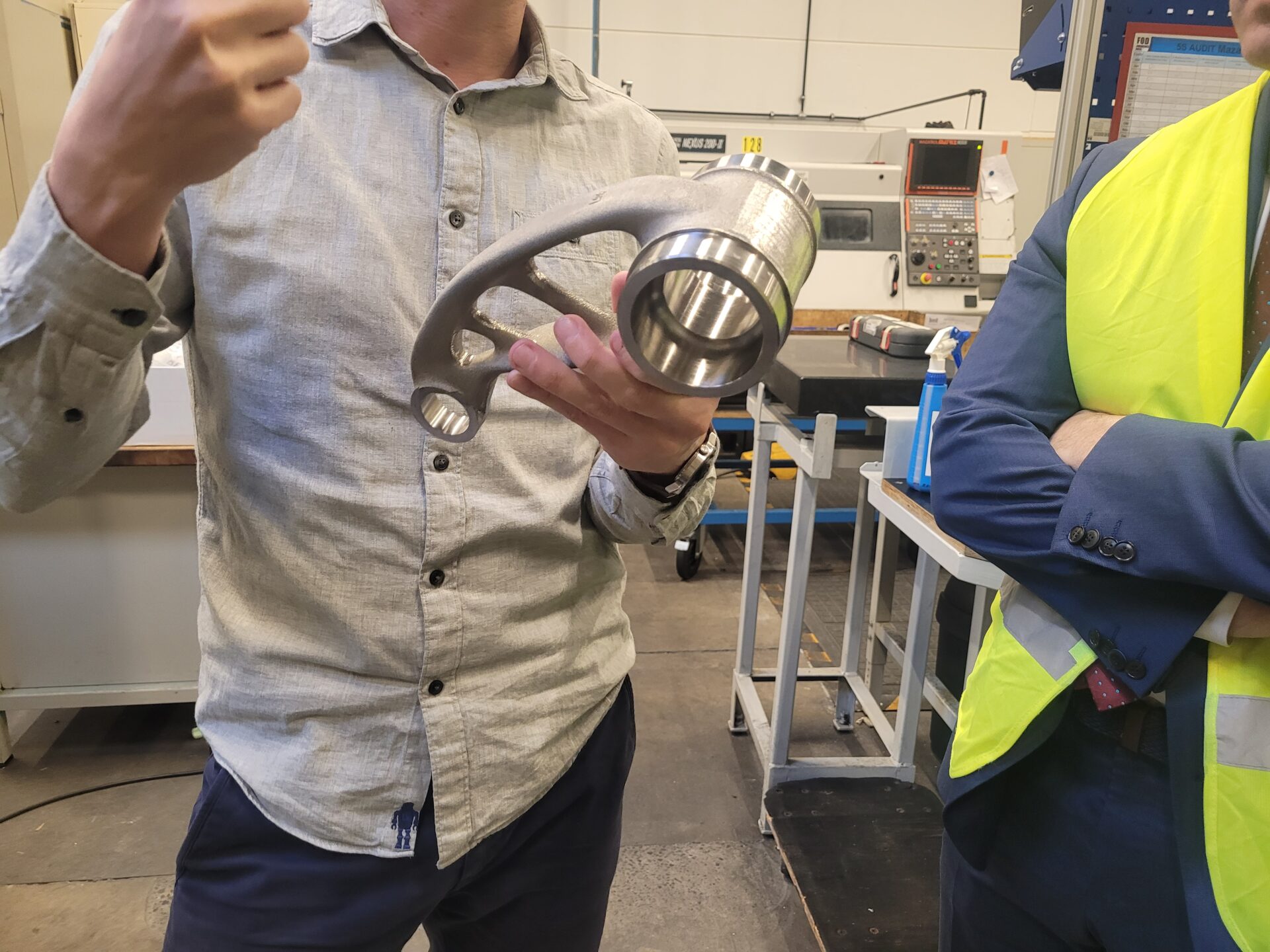
Credit: Dylan Carter/The Brussels Times
BMT estimates that the pandemic cost the average aerospace company 50% of its customers. But the company has rebounded in 2022, thanks in no small part to a surge of military orders.
“It has always been a fight between the military and the civil side to get to capacity. The moment the civil side went down, we saw an immediate effect on the military side... We see a clear jump in the production of military parts."
War is big business for BMT Aerospace. Reynders expects a significant reversal of fortunes from the Covid years. “2023 will probably be a fantastic year. We will grow above €100 million, which is a milestone for us. €210 million maybe."
This burgeoning industry has not gone unnoticed, least so by the Flemish government which has a history of investing in cutting-edge companies and emerging technologies.
Cash cow for Flanders
In a comment to The Brussels Times, Flemish Minister-President Jan Jambon said that Flanders is actively looking to invest in the military sector, especially in companies specialising in new technologies.
“Due to the war, we see that defence budgets are now rising, they are business opportunities. We recognise that Flanders can become the innovative region capable of responding to demand on the market. So yes, we are looking into what’s happening in the defence industry, military industry, to position Flanders."

Credit: Dylan Carter/The Brussels Times
According to statistics provided by the Minister-President, Flanders now spends 3.6% of its GDP on research and development across the economy, “but also in the military sector.” Jambon points to BMT as an example of a company that can develop with regional support.
The role of US investment in Flanders is not insignificant. In 2022, the US was the single largest foreign investor in the region. US companies invested in 46 investment projects and created 2,200 jobs. “It’s not to be underestimated: American companies clearly have confidence in what we can do here in Flanders,” the Minister-President said. “Our technology helps our allies move forward.”
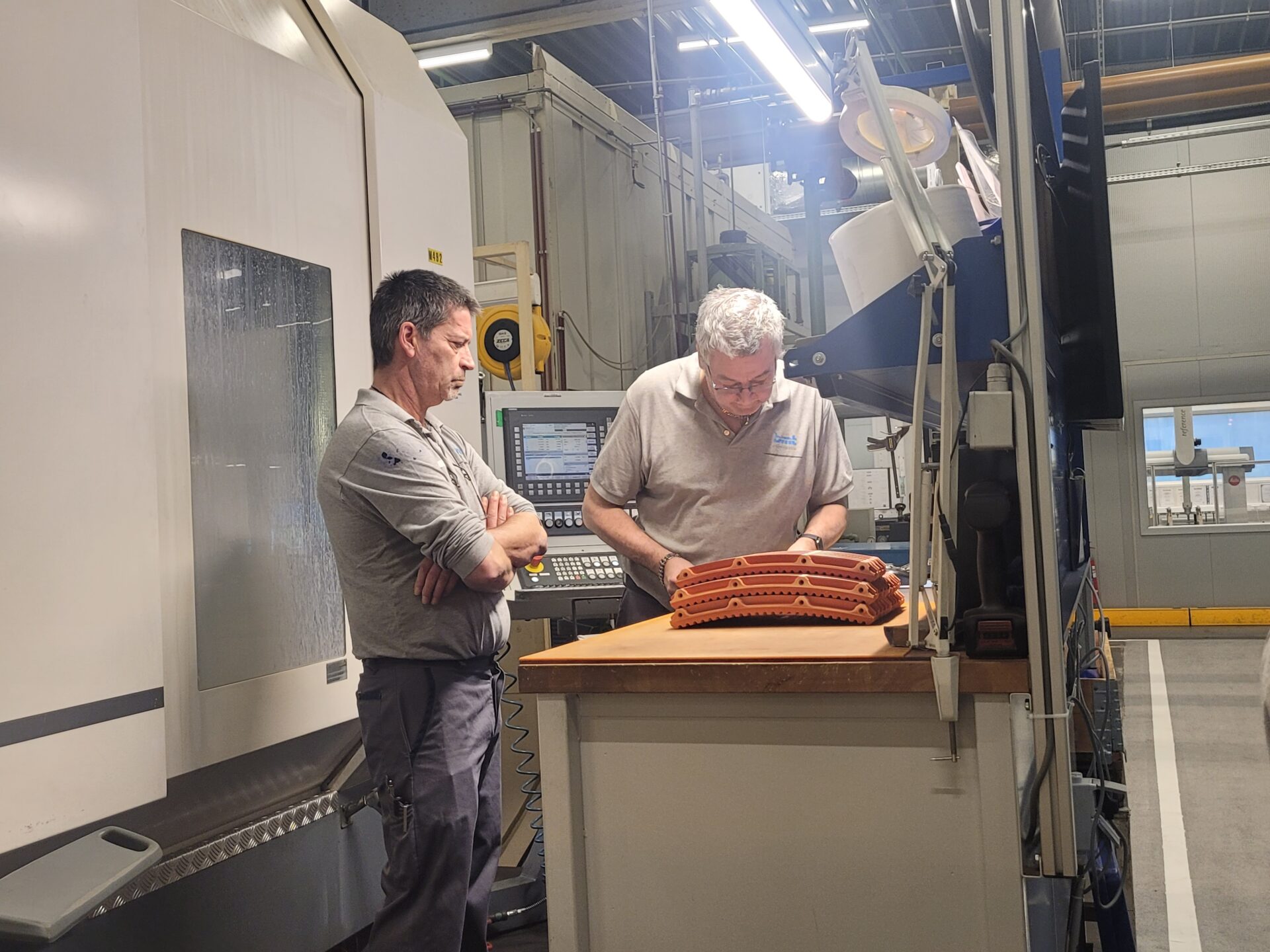
Credit: Dylan Carter/The Brussels Times
In a speech before the American dignitaries, which included representatives of the US Office of Defence Cooperation in Brussels, the Flemish leader evoked the war in Ukraine and his recent visit to the embattled Ukrainian city of Lutsk as contributing factors in the increased economic cooperation.
“Together with its NATO allies, Flanders must continue to invest and innovate in our own defence… Thanks to BMT, Flanders can do its bit for NATO and especially for the protection of millions of people worldwide,” Jambon said.
Defence industry in the spotlight
Despite the significant boost they bring to the local economy, military projects pose moral and practical challenges for the Flemish Government. In Wallonia, the regional government has faced repeated criticism for its state-owned arms industry.
French-speaking authorities have struggled to ensure that its weapons and technology don't end up in the wrong hands. Arms shipments to Saudi Arabia from Wallonia have been used by Saudi troops in the Yemen Civil War, who are implicated in the commission of war crimes.
Dr. Diederik Cops, a researcher at the Flemish Peace Institute, stresses the difficulty of determining who the end user might be: "At the point that a contract is signed or when it's for a specific component, it's not always easy to know which aircraft it will be used for or by which country."
Cops cited Flemish-made parts for the Airbus A400 transport aircraft, which were ultimately delivered to Turkey and used for illegal ends: "We know that in some cases Turkey used their A400 fleet to send weapons to Libya in breach of the international arms embargo. It is very difficult... on a geopolitical and economic level to stop deliveries for specific components to one country or several countries."
Jambon insisted that these issues are taken into account when considering export licenses. In the region's arms decree, Flanders describes itself as a "peace region." Yet increasing investment in the military sector will force Flanders to adapt both its export and foreign policy.
“We have to be mindful about what the region produces. But if we say no to investing in weapons, then tomorrow the police or the army will be unarmed,” Jambon maintained.
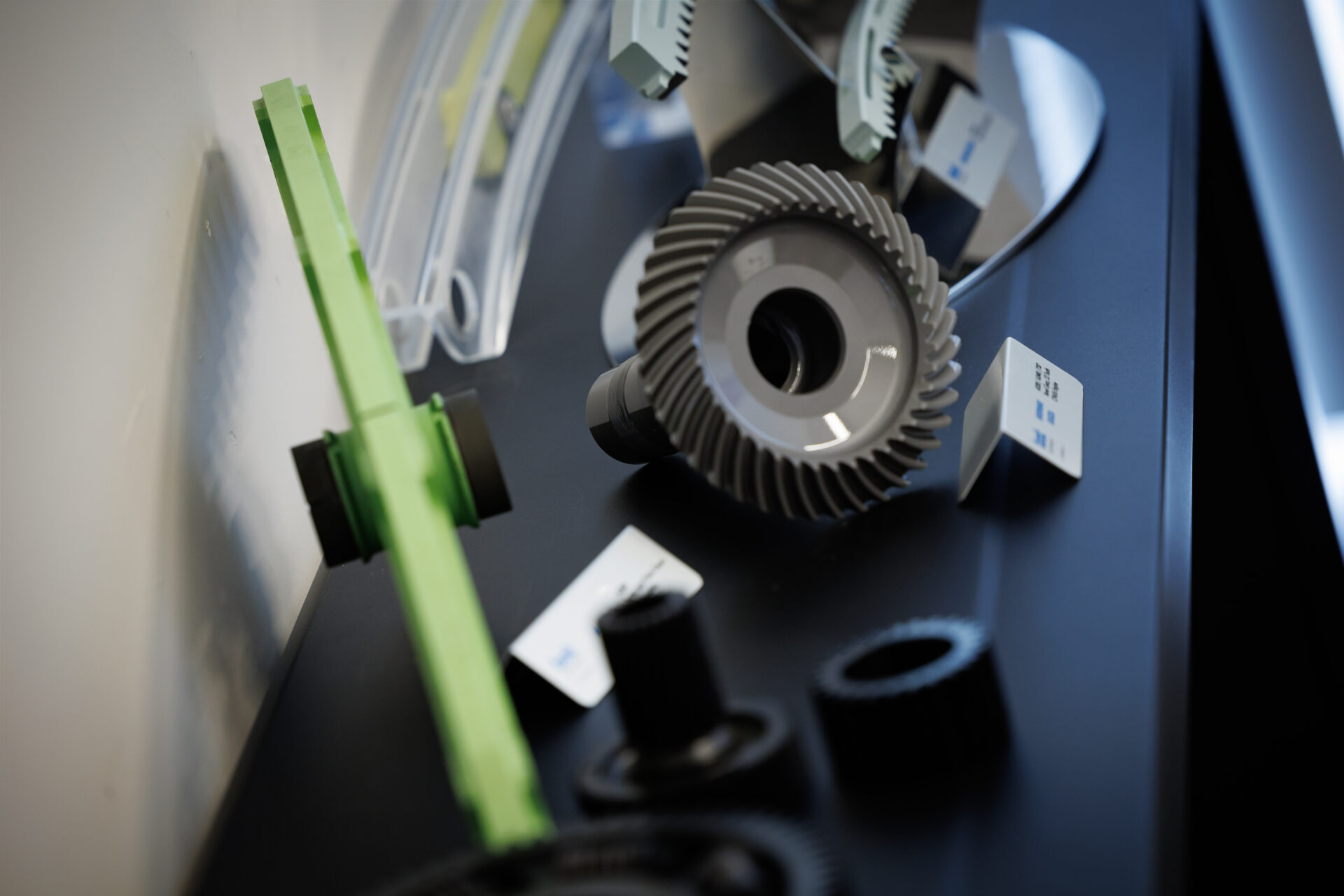
Credit: BELGA PHOTO/ KURT DESPLENTER
"It is very difficult to deny licenses after a company has become part of a supply chain, which is why it's vital to agree on how to deal with possible future arms exports at the beginning of a project," Cops countered.
Even EU Member States, such as France and Germany, have encountered difficulties in finding common ground on arms export rules due to the web of considerations that must be made to prevent their misuse. For Cops, this highlights the importance of ensuring traceability and accountability within Flanders.
Related News
- Russian cyberwarfare targets both Ukraine and the West
- Belgium officially announces 'largest military aid package' to Ukraine
Above the regional level, the Federal Government is watching companies like BMT with great interest. Reaching 2% military spending will require massive investment into Belgium’s own military production capacities.
In June 2022, during a visit to Walloon weapon systems manufacturer John Cockerill Defence, Belgian Defence Minister Ludivine Dedonder announced that the government would invest €1.8 billion into military research and development as part of the Federal Government’s STAR (Security, Technology, Ambition, Resilience) plans.
“There are projects that we would like to do. We are talking to our partners and the Federal Government today and we will see what will be possible for BMT Aerospace,” Reynders said.

